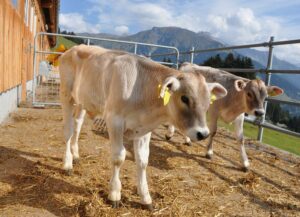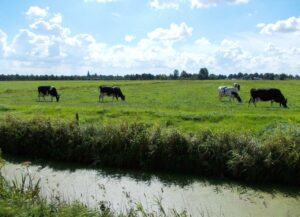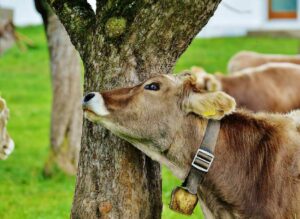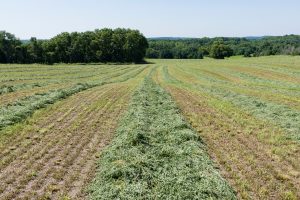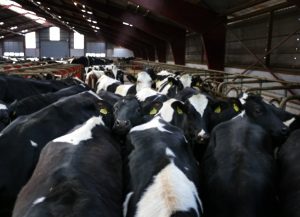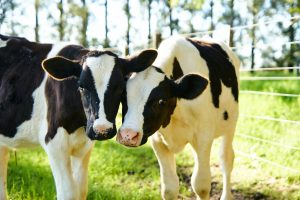Lucas Pantaleon
Recycled manure solids (RMS) are used as bedding material in dairies due to its onsite availability and increased cow comfort. The methods to producing RMS are wide-ranging and the potential for the material to be a source of parasites has not been well researched.
To date, most dairies house their animals indoors year-round. This has the advantage of reduced exposure to pasture contaminated parasites. However, the risk for protozoan parasites (Cryptosporidium spp., Eimeria spp. and Giardia ssp.) could be higher. The economic impact of these parasites on dairy farms has not been studied. Some of the ill effects of these pathogens to herds are low feed conversion, reduced milk production and death. Additionally, Cryptosporidium parvum is a zoonotic disease putting at risk farmers and veterinarians, and cattle could act as reservoirs for this parasite. The oocytes are able to persist in the environment for prolonged periods of time due to its thick wall, hence contaminating the environment.
Canadian researchers isolated intestinal parasites from RMS bedding material, to assess if whether RMS preparation procedures are able to eliminate the parasites. In addition, they evaluated if the parasite prevalence in cows bedded with RMS differ from cows bedded with straw.
The researchers recruited 27 RMS-based farms and 61 control farms. From both types of farms, manure samples were collected from the last indoor point before the manure pit. For RMS farms additional samples were obtained from manure solid fraction after liquid extraction, RMS before use and RMS in use.
Results yielded a high prevalence of Cryptosporidium spp. and Eimeria spp. in both types of farms, with a larger number of samples being positive in RMS farms. Oocysts from Cryptosporidium were found in every step of the preparation of RMS, thus demonstrating that the process of RMS preparation does not destroys this protozoa. Furthermore, the presence of viable Eimeria and Cryptosporidium oocysts can be a source of infection and clinical disease for calves.
Samples obtained from bulk milk tank yielded negative results. This indicated a low possibility for mammary gland contamination or milk infection during harvest, on farms using RMS and straw.
Since there was a high incidence of Cryptosporidium, including the zoonotic C. parvum, more work needs to be done to evaluate the infectivity of oocysts on RMS as well as quantify the risk of environment to animal transmission in calves, and risks for humans and water supplies.
The environmental resistance of Cryptosporidium oocysts along with the fact that most of RMS were positive for this microorganism could have 2 important implications. (1) Without having been tested for pathogens, RMS should not be used for calves, since they are more susceptible to clinical disease. (2) Because C. parvum can infect humans via fecal-oral contact or airborne dust particles, the oocyst counts found in this study suggest a potential risk of zoonotic infection when working with RMS. There is the need for the implementation of improved protocols on RMS farms, such as a validated composting process that guarantees total inactivation of these parasites.
Reference
Marlen I. Lasprilla-Mantilla, Victoria Wagner, Joan Pena, Annie Frechette, Karine Thivierge, Simon Dufour, and Christopher Fernandez-Prada. 2019. Effects of recycled manure solids bedding on the spread of gastrointestinal parasites in the environment of dairies and milk. J. Dairy Sci. 102:11308–11316.
© 2020 Dairy Knowledge Center, LLC. All Rights Reserved.



